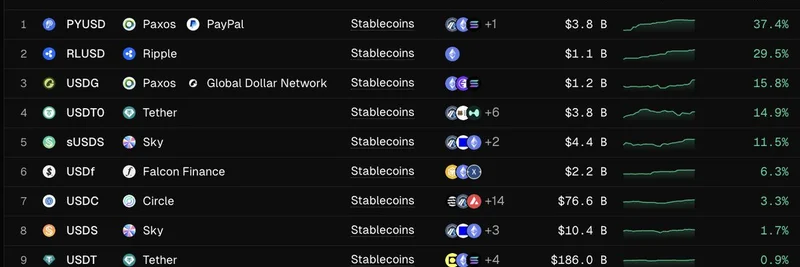In the fast-paced world of crypto, narratives can shift quicker than a pump-and-dump scheme. A recent tweet from Juan (@juanaxyz00) on X has sparked some interesting discussions, highlighting how Zcash's increasing popularity is rattling those who once dismissed the entire space as nothing more than "financial nihilism."
The Viral Tweet That Hit a Nerve
Juan's post reads: "The people experiencing the most cognitive dissonance about Zcash picking up steam are the ones who bought the lie that all of crypto was a pointless exercise in financial nihilism and could never amount to anything more than that." Check out the full thread here.
This statement cuts right to the heart of ongoing debates in crypto. For the uninitiated, cognitive dissonance is that uncomfortable feeling when your beliefs clash with new evidence. In this case, it's skeptics grappling with Zcash's real-world utility after years of viewing crypto as a speculative bubble with no substance.
What is Zcash, Anyway?
Zcash, often ticker-symbolized as ZEC, is a cryptocurrency launched in 2016 that's all about privacy. Unlike Bitcoin, where transactions are publicly visible on the blockchain, Zcash uses advanced cryptography called zero-knowledge proofs (zk-proofs) to allow users to shield their transaction details. Think of it as sending money in a sealed envelope rather than a transparent glass jar. This tech ensures privacy without sacrificing the security and decentralization that blockchain offers.
In recent months—leading up to October 2025—Zcash has been gaining traction, possibly due to heightened concerns over data privacy in an era of increasing surveillance and regulatory scrutiny. Whether it's adoption in DeFi (decentralized finance) or everyday transactions, Zcash is proving that crypto can solve real problems beyond just memes and hype.
Replies Echo the Sentiment: Privacy Matters
The thread didn't stop at Juan's insight. Replies poured in, amplifying the message. One user, Ian LeViness, added: "True, and that privacy doesn’t matter when it does." Others like Geeq emphasized how "privacy and security are still so undervalued," predicting big things once people catch on.
Vendor chimed in with: "They built an identity on crypto's failure. Zcash's utility shatters that narrative." And Meo noted: "Some people still think 'privacy' is optional in crypto… until it’s the only thing that matters, anon."
Even a nod to emerging projects came up, with one reply mentioning @DarkFiSquad, a privacy-focused initiative that could push these boundaries further. These responses show a community rallying around the idea that crypto's value extends far beyond speculation.
Lessons for Meme Token Enthusiasts
Now, you might be wondering: what does this have to do with meme tokens? At Meme Insider, we're all about dissecting how these fun, community-driven assets fit into the broader blockchain ecosystem. Meme tokens—like Dogecoin or newer viral sensations—often get slapped with the "financial nihilism" label. They're seen as jokes, pump-driven by hype and FOMO (fear of missing out), with little underlying value.
But Juan's tweet serves as a reminder that narratives evolve. Just as Zcash is demonstrating practical utility in privacy, meme tokens are starting to experiment with real features. Some are integrating DeFi elements, NFTs (non-fungible tokens), or even privacy tools to add layers beyond the laughs. Imagine a meme coin that uses zk-proofs for anonymous community voting or shielded giveaways—suddenly, it's not just nihilism; it's innovation.
The cognitive dissonance Juan describes mirrors what meme skeptics face when a "joke" token builds a massive, loyal community or partners with real-world brands. It's a wake-up call: dismissing entire categories in crypto ignores the potential for growth and utility.
Why This Matters in Today's Crypto Landscape
As blockchain practitioners, staying ahead means recognizing these shifts. Privacy coins like Zcash aren't just surviving; they're thriving amid global pushes for data protection. For meme token creators and investors, this is an opportunity to blend humor with tech. Projects that incorporate privacy could differentiate themselves in a crowded market, attracting users who value anonymity alongside the fun.
If you're deep into memes, consider how tools from privacy pioneers could enhance your favorites. It's not about abandoning the nihilistic roots—sometimes that's the charm—but about evolving to something more sustainable.
What do you think? Is Zcash's momentum a sign of crypto maturing, or just another cycle? Drop your thoughts in the comments, and keep an eye on Meme Insider for more insights into how tech trends intersect with the wild world of memes.

